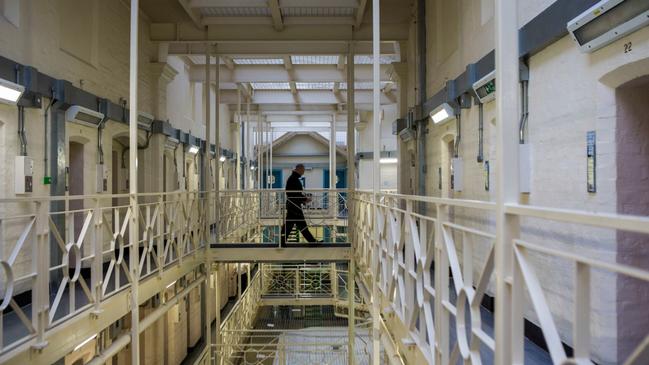Inmates freed to ease jail squeeze
The ‘recall prison population’ has more than doubled in the past 10 years

More space will be created in jails under plans to be announced this week which will make it easier and quicker for inmates recalled to jail to be re-released as figures show they account for one in seven of the 87,000 prisoners in England and Wales.
The “recall prison population” – those who return to jail for breaching release conditions – has more than doubled in the past 10 years. In June, 12,199 of those in prison had been recalled for a breach of licence, a record.
Last year a total of 27,270 offenders were recalled to custody for breaching licensing conditions. This figure is separate to those who reoffend and costs the taxpayer £600m ($1.16bn) a year.
The bureaucratic process for authorising the re-release of recalled prisoners will be among measures to be included in an overhaul of sentencing laws. Ministers want the changes ready for next summer, when prisons are again due to run out of space.
The measures are set to be assessed as part of the sentencing review that will be announced on Tuesday by Shabana Mahmood, the Justice Secretary. She will appoint the former Conservative cabinet minister David Gauke, who was lord chancellor in Theresa May’s government, to lead the review.
Low-risk prisoners recalled to jail for a breach of licence are freed automatically after 28 days. If they want to challenge the recall decision and be freed earlier, they have to go through several stages of approvals from a probation officer and a unit called the public protection casework section. This acts on behalf of the justice secretary to carry out a risk assessment and the process can take up to 28 days.
High-risk prisoners recalled to jail face having to spend the rest of their licensing period behind bars unless they can succeed in an even more bureaucratic process which involves the Parole Board. This often takes six months to a year.
Martin Jones, the chief inspector of probation, urged the government to change the rules governing the initial decision to recall a prisoner. He suggested a warning system by which offenders are recalled only if they breach their licence three times. He told The Times: “In some cases I don’t think it’s always necessary for the protection of the public [to recall someone to prison]. Quite often it’s a result of someone encountering difficulties. If someone has a drug addiction, for example, is the best intervention actually getting them support to treat that addiction rather than sending them back to prison?
“Stable accommodation is another crucial area because not staying in contact with probation is often a licence breach. It’s quite hard to manage someone if you don’t know where they are. About 80 per cent of people who leave prison have stable accommodation, which means 20 per cent do not.
“For people who are breaching their licence, are there alternative sanctions? Could you have a shorter period in custody or could you have a three strikes and you’re out rule where you say to someone: ‘I’m giving you a warning now and unless you do what you need to do you’ll be back in prison’ – almost pressing a pause on that button.”
Mr Jones also highlighted the process in Scotland where the Parole Board reviews recall decisions within a week of a criminal returning to custody.
Also on Tuesday, more serious offenders – those serving sentences of over five years – will start to qualify for the government’s early-release scheme. This will free prisoners serving fixed-term tariffs at the 40 per cent stage of their sentence rather than the halfway point.
On Friday The Times revealed drug dealers and a fraudster who conned a man out of his £300,000 home will be among 1100 prisoners to be released under the scheme.
Baroness Newlove, the victims commissioner, criticised government handling of the first tranche of releases, which started on September 10 and applied to those serving sentences of less than five years. There were problems with hundreds of prisoners released without electronic tags to monitor them.
The Times


